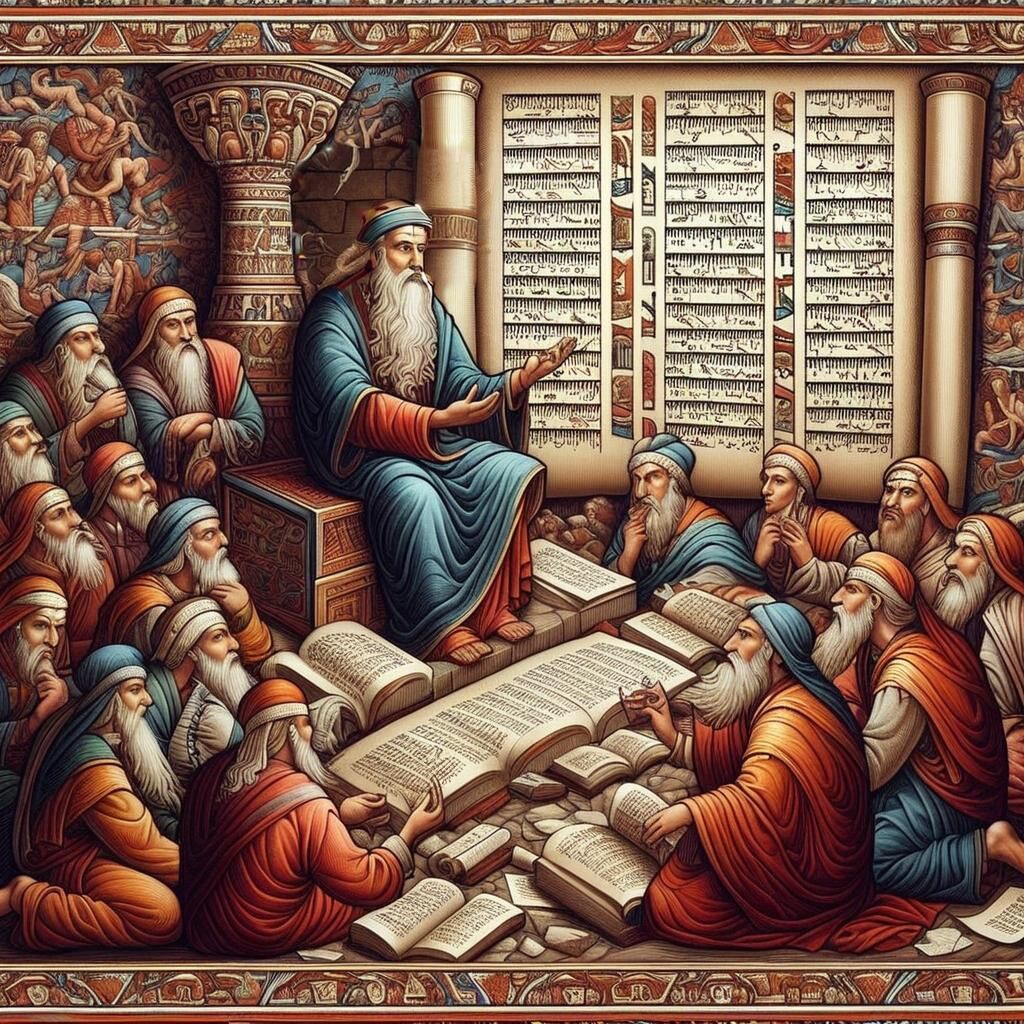Greetings, saints of the Most High! Welcome to another installment of the Messianic Torah Observer. Today, we delve into the intriguing topic of our Melchizedekian Priestly Pedigree, focusing on Jasher’s hidden chronicles.
In Part 3, we explored the theological implications of the Avram-Melchizedek encounter, discussing the dual offices of priesthood and kingship, the blessing conferred upon Avram, the significance of tithing, and the mysterious nature of Melchizedek. We also examined various religious perspectives on Melchizedek, including those from Catholicism, Islam, and Messianic Judaism.
Jewish legend and tradition often identify Shem, Noah’s righteous son, as Avram’s Melchizedek. However, there are several issues with this theory, including the lack of canonical biblical evidence and the improbability of Shem’s lifespan overlapping with Avram’s. Despite these concerns, the book of Jasher perpetuates this connection, presenting a narrative where Shem is indeed Avram’s Melchizedek.
Jasher’s account embellishes the biblical story, referring to Melchizedek as Adonizedek and describing a community meeting with Avram, bearing bread and wine. Interestingly, Jasher omits Melchizedek’s blessing of Yehovah, a curious detail given some ancient rabbinic opinions.
The narrative continues with Shem passing his prophecy school to Eber, his great-grandson, while the Melchizedekian priesthood is conferred upon Avram. This lineage, according to Jasher, includes notable figures like Adam, Enoch, and Noah, culminating in Avram.
However, the Jasher narrative raises questions about the authenticity and accuracy of these accounts. The Melchizedekian priesthood, as described in the Torah, operates outside biological heritage lines and temple sacrificial systems, foreshadowing the Spirit and Truth worship Yeshua spoke of.
Despite the conflicts between Jasher’s and the Torah’s accounts, we can glean significant insights into our Melchizedekian priestly pedigree. Concepts of righteousness, priestly conduct, obedience, and steadfast commitment to the faith form the foundation of our priestly calling. As students of Yahoshua’s Great School of Prophecy, we are in a season of training and preparation for our future roles in the Kingdom of Yehovah.
In conclusion, while I have my reservations about Jasher’s account, it offers valuable lessons about the godly elements that make up our Melchizedekian priestly pedigree. As we continue this series, we will explore these elements further, preparing us to serve as Melchizedekian kings and priests in the coming Kingdom of Yah.
May you be most blessed, fellow saints in training. Let us embrace our calling and prepare for the roles we are destined to fulfill.
One Law For All–Reflections on Torah Portion Shelach Lekha
The Giver of Torah-YHVH-clearly stated that Torah was for all who would attach themselves to the commonwealth of Israel and live according to the Way He prescribed for men and women to live. Yet many within and without our Faith Community teach otherwise--that Torah...
Messianics—Modern Day Levites—Separated for Service to God—Thoughts and Reflections on Torah Portion Behaalosecha
This week’s Torah Portion-Behaalosecha-foreshadows a great many spiritual elements necessary for our service to the Kingdom of God. In a sense we are modern day Levites. We have been separated from all the nations people of the world unto God for His service. Are we up for the challenge? This is a wake-up call to the Body of Messiah to take immediate action.
Israel: To Love or Hate Her—That is the Question—Part 2–A Biblical and Personal Perspective on the Significance of Physical Israel
In this 2nd Part to our Israel: To Love or Hate Series, we continue our analysis of some the most common reasons people reject physical Israel today. As well as we consider some of the miracles said to have resulted in Israel’s deliverance from certain destruction. And lastly we consider the problems associated with the nation state of Israel. Shalom and welcome.
Burdens and Service-Thoughts and Reflections on Parashot Naso-Lift Up
Lessons of bearing burdens and service to YHVH are embodied in this week’s Torah Portion Naso. As disciples of Messiah, we are compelled to serve and bear burdens as we discuss in this post.
5-Facts About Pentecost [Shavuot] Every True Disciple of Messiah Should Know
As the Day of Pentecost (aka, Shavuot) descends upon many of us who are of Faith in the coming days, we reflectively prepare for the Day. With that preparing in mind, today I will reveal 5-things every spirit-filled disciple of Yeshua Messiah should know about Shavuot—Pentecost.
To Love Or Not Love Israel?That is the Question–Part 1
As Yeshua-focused Torah Keepers, how are we to view physical Israel? We discuss this polarizing issue from a historic, biblical and personal perspective. Shalom and welcome.
Shemittah and Jubilee-Shadows of the Rest, Redemption and Freedom We Have in Messiah
This week’s Torah Reading/Portion entitled B’Har is a message of the rest, redemption and freedom we have in Y’shua Messiah.
10-Things You Must Do To Improve Your Understanding of the Bible
In this installment of TMTO, I outline 10-things you can put into practice today that will drastically improve your understanding of the Bible.
Being Holy in the Midst of an Evil and Adulterous Generation
This week’s Torah Portion was timely indeed. As we are presently living in perilous times, this week’s Torah Portion challenges us to live holy lives in Messiah. We explore what it means and how to live holy lives.
Passover and the Feast of Unleavened Bread Replay
In light of this weekend’s Passover observance and our week’s longing keeping of the Feast of Unleavened Bread, I elected to repost a teaching I posted last year on Passover and the Feast of Unleavened Bread. Chag Pesach Sameach. Shalom.

